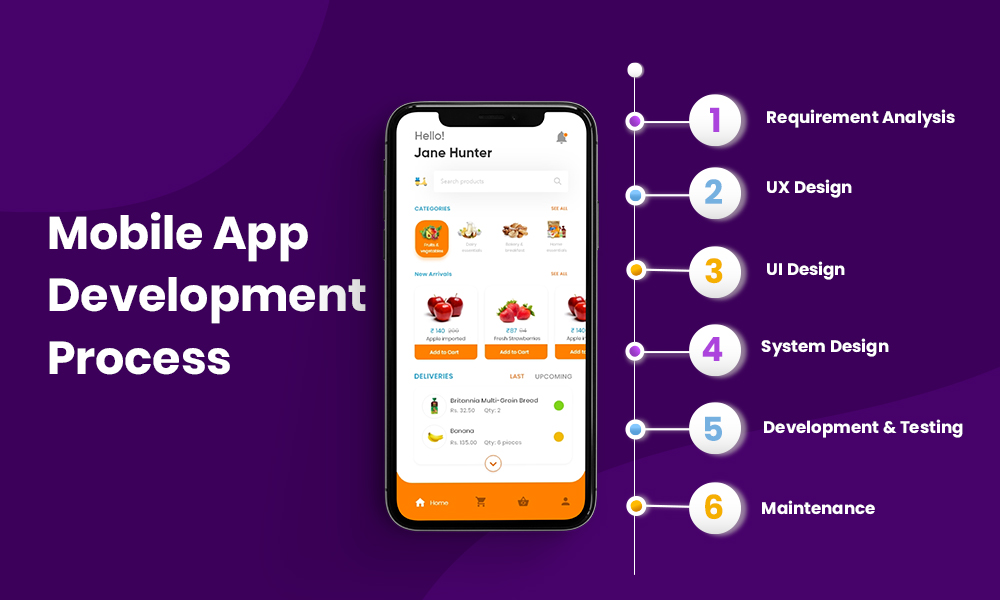Mobile devices have become an indispensable part of our daily lives, with smartphones and tablets serving as powerful tools for communication, entertainment, and productivity. As the demand for mobile apps continues to soar, mobile development has emerged as a vital aspect of the tech industry. In this blog, we’ll explore the evolution of mobile development, its significance in today’s digital landscape, and key considerations for building successful mobile applications.

The Evolution of Mobile Development
1. Native Apps
In the early days of mobile development, native apps dominated the landscape. Developed for specific platforms like iOS or Android, native apps offered the best performance and user experience but required separate codebases for each platform.
2. Hybrid Apps
Hybrid app development emerged as a solution to the challenges posed by native development. These apps combine elements of both web and native applications, allowing developers to write code once and deploy it across multiple platforms.
3. Progressive Web Apps (PWAs)
PWAs represent the latest evolution in mobile development. These web-based applications leverage modern web technologies to deliver app-like experiences across different devices and platforms. PWAs offer benefits such as offline functionality, push notifications, and improved performance.
The Significance of Mobile Development
1. Accessibility
Mobile apps enable users to access information and services on the go, anytime and anywhere. This accessibility has transformed various industries, from retail and banking to healthcare and education.
2. Engagement
Mobile apps provide a direct and personalized channel for engaging with users. Push notifications, in-app messages, and personalized content can help businesses stay connected with their audience and drive user engagement.
3. Revenue Generation
Mobile apps present lucrative opportunities for businesses to generate revenue through various monetization strategies such as in-app purchases, subscriptions, advertising, and freemium models.
4. Competitive Advantage
In today’s competitive market, having a mobile app can give businesses a significant edge over their competitors. A well-designed and feature-rich app can enhance brand visibility, customer loyalty, and overall competitiveness.
Key Considerations for Mobile Development
1. Platform Selection:
When developing a mobile app, it’s essential to consider which platforms to target—iOS, Android, or both. Factors such as target audience, market share, and development resources should influence your platform selection.
2. User Experience (UX) Design:
A seamless and intuitive user experience is critical for the success of a mobile app. Designing with the user in mind, optimizing for different screen sizes, and adhering to platform-specific design guidelines are essential considerations.
3. Performance Optimization:
Mobile apps should be optimized for performance to ensure smooth and responsive user experiences. Techniques such as code optimization, caching, and lazy loading can help improve app performance and reduce load times.
4. Security:
Security is paramount in mobile development, especially when handling sensitive user data. Implementing robust authentication, encryption, and secure communication protocols can help protect against security threats and vulnerabilities.
5. Testing and Quality Assurance :
Thorough testing is essential to identify and address any issues or bugs in a mobile app. Testing should encompass functional testing, performance testing, usability testing, and compatibility testing across different devices and platforms.






